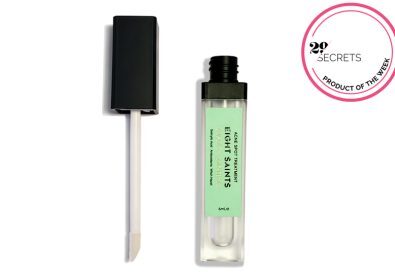When it comes to our hair, you’d think up-keep would be simple. You give it a thorough wash, slather on some leave-in conditioner, and if all else fails, put on a hat. Now, with all the hair rumors circulating around, you begin to doubt even the simplest of questions: is it really better to brush your hair every day? Well, go find that comb you tossed aside, because it’s time to brush up on our hair knowledge.
Trimming your hair will make it grow faster and thicker
FALSE: Despite what many people say, all trimming does is remove split ends and helps to prevent the hair from fraying further. In short, the more frequent you trim your hair, the healthier it will become because you’re cutting off the damage. However, hair grows from the roots, not the tips. With that being said, chopping off the ends of your hair is completely unrelated to its growth. To keep your hair healthy, the best advice we can give is to use a reputable conditioning treatment (like one your hairdresser recommends) and always take advantage of sun protecting serums.
Stress can cause hair loss
TRUE: As much as we all wish this were false, studies show that severe stress can shut down hair production, which causes temporary hair loss. The good news: the scalp usually recuperates, and our tresses grows back fairly quickly. While there are many other factors that produce hair loss (aging, styling and gender all come into play) excessive physical and emotional anxiety is a main culprit. Depending on the severity of the angst, the hair usually grows back within six to nine months.
Washing hair every day will dry it out
FALSE: While incessant hair washing is not recommended, frequently rinsing your locks typically won’t cause any harm. The real damage comes from not washing your hair enough. This is because uncleanly hair blocks our scalp’s natural oil, making our hair dry and brittle. The best option is to find the proper shampoo for your hair type, to add moisture and body to your do.
Certain conditioners can help repair split ends
FALSE: Contrary to what many conditioners claim on the label, no product is able to fix what has already been damaged. What it can do- much like every other product on the market- is disguise our split ends by giving our waves more volume. In other words, conditioners smooth down the cuticles to give the illusion that your hair is flawless and healthy, when it really hasn’t changed at all. On the flip side, a really good conditioner can help prevent damage from happening in the first place.
Brushing your hair often is good for it
FALSE: As the infamous old wives’ tale suggests, 100 strokes a day and your hair will look healthier, brushing your hair often can do the opposite. Turns out over-brushing can actually dull your locks by destroying the cuticles, which leads to hair breakage – eek! The solution? Be kind to your strands. Switch to a comb or gentler brush with boar bristles.
Dandruff is the result of a dry scalp
FALSE: This is a very common misconception. While dandruff is often mistaken for a peeling scalp, they are two completely different problems. The good news: many people who think they have dandruff are really just suffering from a dry scalp. Here’s the difference: dandruff is the product of a build-up of bacteria and usually appears in large areas of the scalp at once. On the other hand, a dry scalp is just an over shedding of dead skin cells caused by itching or over-combing.
Wearing a tight ponytail in the same spot can give you a bald spot
TRUE: Constantly tugging your hair away from your scalp can scar your hair follicles and cause them to stop producing new hair follicles. On the plus side, it’s easy to avoid this problem. If you are a secure pony fanatic, don’t fret; just change the position of your hairstyle often to alleviate the tension. Try loosening up the hold on the pony too. Also be aware that similar damage can happen while sporting headbands, barrettes, and braids. Now you have a reason to switch up your hairstyle on a daily basis!












Would their be any difference in what was written if it applies to both men and women? I imagine that because the article is about hair- the information can be used for both genders.
Ajit
http://www.akalnutrition.com
Would their be any difference in what was written if it applies to both men and women? I imagine that because the article is about hair- the information can be used for both genders.
Ajit
http://www.akalnutrition.com